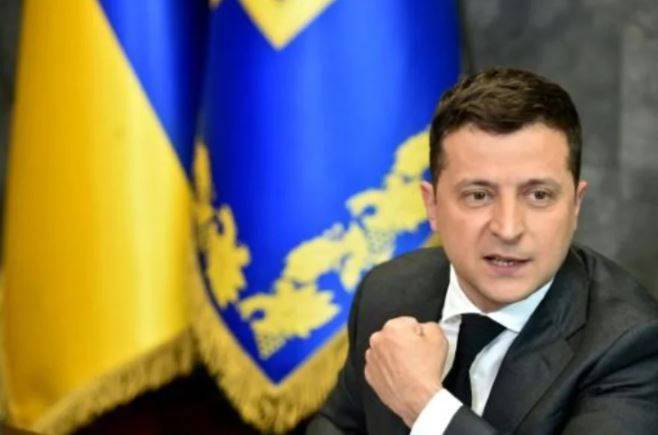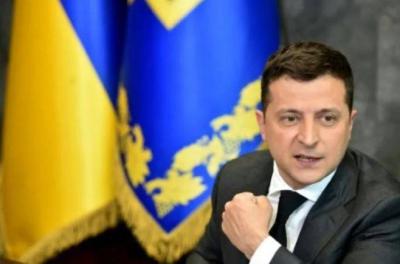Ukrainian President Volodymyr Zelensky accused Russia on Friday of orchestrating a gas crisis in Europe, urging the European Union to coordinate its response with Ukraine against Russian "gas aggression," according to exclusive written statements sent to AFP. Europe, which imports a third of its gas from Russia, is facing rising gas prices due to increased demand stemming from economic recovery as the COVID-19 pandemic situation improves. Zelensky stated, while the heads of the 27 European states were meeting in Brussels, that "there is actual gas aggression against the European Union." He expressed hope that EU countries would recognize the unprecedented need for joint efforts, emphasizing that respect for European values and rules is the only way to maintain European energy independence. He added that Ukraine has something to offer in this regard.
He viewed that Russia, through its refusal to increase supply, is exacerbating shortages and driving up gas prices to pressure Europe into launching the "Nord Stream 2" underwater gas pipeline linking Germany to Russia. Ukraine, which profits significantly from the transit of Russian gas through its territory to Europe, opposes the operation of this pipeline, which is supposed to be initiated by a German operating company. This project receives support from influential European countries, primarily Germany, but other nations argue that this pipeline would increase European dependence on Moscow, which could use it as a weapon in energy matters. The current gas crisis is the first example of this.
He remarked that "Russia wants to force Europe to launch Nord Stream 2 without respecting European rules." The Nord Stream 2 pipeline has an export capacity of up to 55 billion cubic meters of gas annually.
**50% Tariff Reduction for Gazprom Proposed**
President Zelensky proposed an immediate increase in gas deliveries through the Ukrainian network, starting now. He stated, "The gas transit capacities through Ukraine are sufficient not only to normalize the situation but also to protect Europe from tariff shocks in the coming years." He also suggested "very favorable storage conditions" in Ukrainian underground infrastructure. Overall, he confirmed that he could ensure the transit of 19 billion cubic meters of gas by the end of the year.
He indicated that he could propose to Russian company Gazprom a 50% reduction in the transit tariff for Russian gas through Ukrainian territory. He affirmed that Ukraine is capable of allowing the transit of "25, 40, or even 60 billion cubic meters of gas annually" additionally to Europeans. He clarified that this reduction would apply to additional deliveries under the current contract between Gazprom and Kyiv, which specifies that the amount of Russian gas crossing Ukraine is 40 billion cubic meters annually.
Russia denies extorting the EU and, in turn, accuses the European Commission of falling into the trap of its own policies. A combination of factors has led to a decline in supply, resulting in unprecedented price hikes. In Europe, gas stocks have reached their lowest levels since the prolonged winter of 2020 and have not been sufficiently replenished since then, despite the resumption of economic activity after the COVID crisis. Additionally, there has been limited reliance on renewable energy sources, such as wind power, due to weather-related issues.
Moscow believes that the EU has encouraged purchases from the spot market, which is subject to price fluctuations, instead of signing long-term contracts with Gazprom. Russia insists it intends to deliver a larger quantity of gas but hopes to return to signing multi-year agreements.
Russian President Vladimir Putin criticized the "philosophy of the European Commission" on Thursday evening, which believes that energy markets "can be regulated in the stock market through the spot market." He also called for the operationalization of the Nord Stream 2 pipeline.




